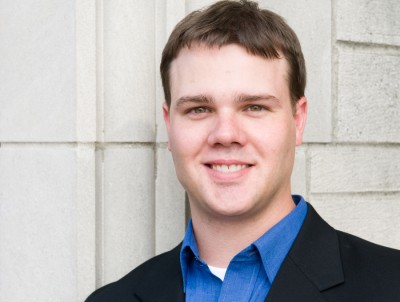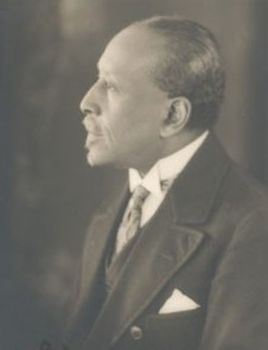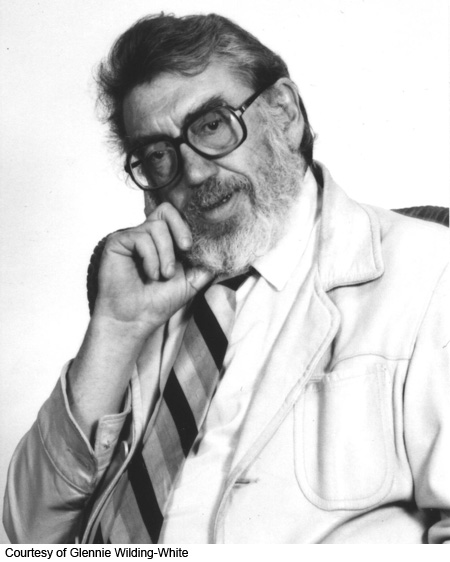by Stephanie Manning

At 12:00 noon, Trinity Lutheran Church will host organist Florence Mustric again for Music Near the Market. On the Beckerath organ, she will perform a program of “simply perfect” music by composers ranging from Pachelbel to Mendelssohn and Grigny to Demessieux.
For more details, visit our Concert Listings.
ANNOUNCEMENTS:
The Cleveland Arts Prize awards ceremony (coming up on October 24) will honor composer Clint Needham with the Mid-Career Artist Prize. Needham (pictured) is a professor of composition and the current composer-in-residence at the Baldwin Wallace Conservatory. His latest work, Mustang Gallop, will be premiered at BW on Friday by the Strongsville Community Band. Read more about the Arts Prize here.
TODAY’S ALMANAC:
by Daniel Hathaway
Meet, if you haven’t already, two composers with Cleveland connections who were born on October 9 in 1869 and 1922 respectively.
Hearing a performance of Tannhäuser at the age of 18 inspired Cleveland-born Henry Lawrence Freeman to compose opera, and by his death in 1954, he had written scores for at least 23 titles, 21 of which are preserved in manuscript at Columbia University. He also founded two opera companies — one at the age of 22 in Denver that bore his name, and the Negro Grand Opera in 1920 in New York. The Martyr — the first opera to be produced by an all-black company, was staged in Chicago in 1893 and in Cleveland in 1894.

Raymond Wilding-White, born in Surrey in England, followed a circuitous career path that took him to France, Argentina, the Juilliard School, the New England Conservatory, then to Cleveland in 1962 to occupy the Kulas Chair at CWRU and to become one of the city’s foremost exponents of avant-garde music. He won the Cleveland Arts Prize for Music in 1967, when Dennis Dooley wrote:
He stunned and stretched local ears (and minds) with adventurous compositions of his own such as Paraphernalia—a Regalia of Madrigalia from Ezra Pound (recorded by CRI in the fall of 1963 with a chorus drawn mostly from the choir of the First United Church of Shaker Heights, directed by Robert Shaw) and the 13-movement Monte Carlo Suite No. 1 for String Quartet (premiered the same year by the Koch Quartet). Among other avant-garde works composed by Wilding-White that were performed and recorded during those years: settings of four songs by William Blake and three poems by A. E. Housman as well as playful piano pieces for young players intriguingly titled Cartoon and Character Sketches.

Alas, the only recordings readily available seem to be his choral arrangements of Aaron Copland’s Old American Songs. Wouldn’t it be interesting to hear a performance of De Profundis?



